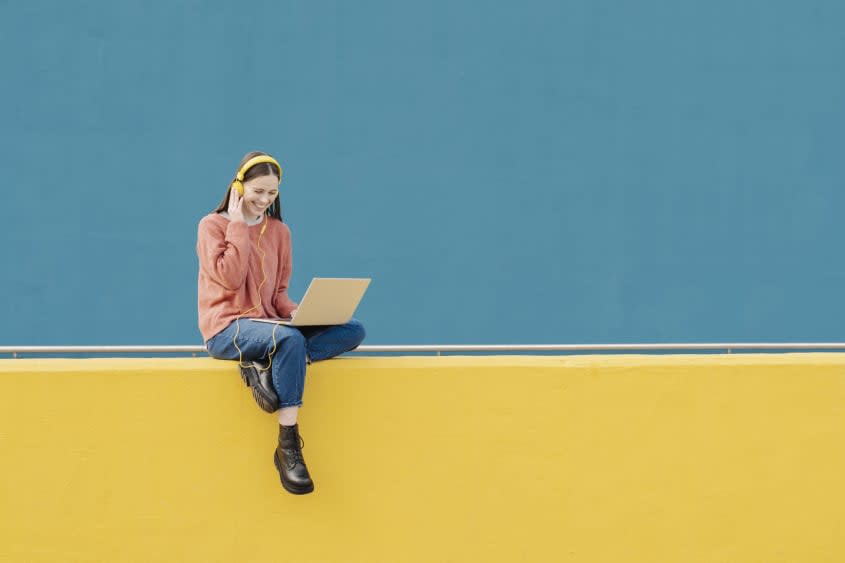What is 'bare minimum Monday'?

A new workplace trend dubbed "bare minimum Monday" is gaining traction on social media. Here's everything you need to know:
What is 'bare minimum Monday'?
Much like "quiet quitting," "bare minimum Monday" encourages employees to ease into their work week by doing just enough to get by. Rather than stress over post-weekend productivity, subscribers are encouraged to first prioritize self-care and mental health before delving into their tasks for the day.
"I would wake up on Monday, really burned out, really unproductive," Marisa Jo Mayes, the 29-year-old self-employed TikToker who popularized the phrase, told The New York Post. "And because I was so unhappy with how unproductive I was being, I would make myself out a long list of things to do."
Now, on Mondays, "I don't take meetings and take it slow for the first two hours," Mayes told Insider. "I'll do some reading, some journaling, maybe some stuff around the house. It's two hours of no technology — no checking email — just doing whatever I need to do to feel good starting my day." Around 10, she will focus on creative work for her brand, before breaking for lunch at 11. After that, the next two hours are solely for completing her "main work tasks."
"I'm not multitasking, I'm not distracted, I'm not on my phone. If I'm not done after that, I'll do another hour, but it's usually no more than that," she continued. "My Monday workday is shorter but because it's really focused work, I get the same amount done as my old eight-hour workdays."
In the end, "[bare minimum Monday] has completely overhauled my relationship to productivity and work and how I think about myself," Mayes said, speaking with the Post. And the trend should be seen as an "opportunity for people to start untethering themselves from hustle culture, little by little, until corporate America catches up. … The tide is turning, and I feel like employees are tired of trading their well-being to perform well at work."
Are there downsides here?
Depends on who you ask. Members of older generations tend to describe Gen Z's attitude toward work as entitled, and this trend surely won't help there. Meanwhile, other TikTok users are worried that brazen online announcements about the prioritization of self-care during the workday will encourage CEOs to — womp, womp — send everyone back to the office.
But of course, Mayes isn't ignorant of the criticism. "I understand Bare Minimum Monday isn't realistic for everybody," she told Insider. "I'm self-employed, I work from home, I'm not a mom. But for anyone interested in trying it, pay attention to where you're putting unnecessary pressure on yourself or setting unrealistic expectations. If you know you won't have time for something, don't put it on your list."
Why is this happening now?
"Bare Minimum Monday" represents a "convergence of pandemic-era trends," writes ABC News: "A blurring of the boundary between work and leisure amid the rise of work from home, a tight labor market that has afforded leverage to employees, and social media content creators who've found a wide audience for workplace frustration." Added Cornell Professor Brooke Duffy: "It's a perfect storm of the type of expression and dissatisfaction we're seeing put on these platforms in a very public way."
In many ways, the dawn of such viral work-less trends — "quiet quitting" and "the great resignation" among them — might very well have less to do with Gen Z's general appetite for work and more to do with their expectations of the future, which are far more moderated and less preoccupied with the American Dream than those of their elders. As Holly Thomas writes for CNN, even "the most vocal" Gen Z-ers "still probably work harder for less than their Gen X parents and boomer grandparents. And unlike millennials, who were at least motivated by the hope that it would all be worth it in the end, there's no such light on the horizon for Gen Z." With that in mind, maybe a Monday focused on yourself doesn't sound so bad after all.
The broader conversation here also suggests "we're not getting that work-life balance right," despite remote work and increased flexibility, Jill Cotton, a career trends expert at Glassdoor, told Fortune. "I think that it's less about the bare minimum Mondays having an impact on productivity and more about employees and employers working together to create the most productive workplace possible."
Indeed, Mayes continued with Insider, bare minimum Monday is "really a way to start the week prioritizing yourself as a person over yourself as an employee. It's radically changed my life, not because of the productivity, but because of that self-compassion."
You may also like
5 hilarious cartoons about Tucker Carlson's bad week
The most shocking Oscar upsets of all time
Biden keeps current color scheme for next Air Force One after scrapping Trump design

